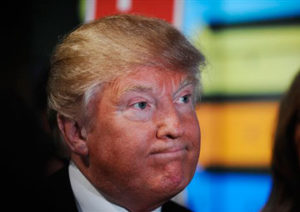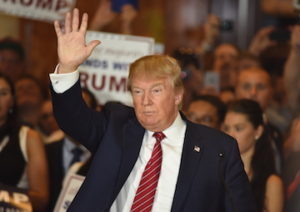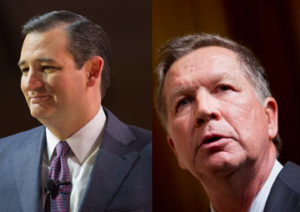Whistling Dixie — Again
Does Haley Barbour really have a warped and offensive view of America's racial history? Or is he just playing a dangerous game? Perhaps both.Does Haley Barbour really have a warped and offensive view of America’s racial history? Or is he just playing a dangerous game?
Perhaps both.
The Mississippi governor, considered a potential Republican candidate for president in 2012, keeps displaying what appears to be an astonishing level of ignorance about our nearly 400-year struggle with issues of race. At this point, it’s more than a pattern. It’s either a pathology or a plan.
The latest outrage — and I don’t use that word lightly — came Tuesday, when Barbour was asked to comment on a proposal for a state license plate honoring one of the most notorious figures of the Civil War era, Confederate Gen. Nathan Bedford Forrest. I question whether any Confederate officer is worthy of such recognition, given that they were all committing treason. But even for the Sons of Confederate Veterans — the group proposing the license plate — Forrest should be an embarrassment.
For those who do not see the Civil War through a revisionist gauze of gallantry and Spanish moss, Forrest is an abomination. In 1864, his troops mowed down scores of black Union soldiers who were trying to surrender, in what became known as the Fort Pillow Massacre. After the war, Forrest became one of the founding fathers of the terrorist Ku Klux Klan — and was the group’s first national leader, or “grand wizard.”
Barbour was asked whether he would denounce the idea of honoring such a figure. “I don’t go around denouncing people,” he told reporters. “That’s not going to happen.”
But of course, Barbour denounces people all the time. Just last weekend, at the annual Conservative Political Action Conference in Washington, he denounced President Obama and the Democratic Party. Denouncing is part of any politician’s job, and Barbour does it with brio and elan. Why would he refuse to say what he thinks about honoring a founder of the KKK?
This odd reticence follows three recent episodes in which Barbour was all too glib. Last April, he was asked to comment on Virginia Gov. Bob McDonnell’s “Confederate History Month” proclamation that neglected to mention slavery. McDonnell quickly apologized and corrected what he described as a serious error. Barbour, however, maintained that the controversy “doesn’t amount to diddly” and that there was no need “to explain to people that slavery is a bad thing.”
In September, Barbour claimed that “my generation” in the South went to “integrated schools” and that he “went to integrated college — never thought twice about it.” Barbour actually went to all-white Mississippi schools. His college, the University of Mississippi, was integrated in 1962 when federal marshals escorted James Meredith onto campus while white students rioted in protest. When Barbour arrived a few years later, the few black students at Ole Miss were harassed and shunned.
In December, Barbour praised the White Citizens Council in his hometown of Yazoo City for its role in the fight over desegregation. In fact, the Citizens Councils throughout the South were implacable in their defense of segregation. They just favored nonviolent tactics — such as having “uppity” blacks fired from their jobs — instead of burning crosses.
Barbour quickly retracted his praise of the Citizens Councils. But here we are again, just a couple of months later, trying to bridge the distance between Barbour’s version of history and what actually happened.
If this is the way Barbour thinks, the prospect that he might run for president should be alarming. I have to acknowledge the possibility, however, that in this instance he’s just being insincere and clever.
Nothing about the way Barbour has acted in his long public life suggests that he really admires the first grand wizard of the KKK. But by dodging the question, he avoids alienating voters who might think that Forrest was a prince of a guy. In other words: “It’s not my job to tell the American people what to think.”
Hold it, that quote isn’t from Barbour, it’s from House Speaker John Boehner. That’s what he said Sunday on “Meet the Press,” when asked why he doesn’t forthrightly tell the “birthers” who doubt President Obama’s citizenship that they’re wrong. Like other prominent Republicans, Boehner was encouraging the wing nuts with careful equivocation and strategic silence.
“I’ll take him at his word,” Boehner said, when asked whether he believes Obama is a Christian. I suppose, then, that I’ll have to take Barbour at his word that he’s not a racist.
Is that how you play this game?
Eugene Robinson’s e-mail address is eugenerobinson(at)washpost.com.
© 2011, Washington Post Writers Group
Your support matters…Independent journalism is under threat and overshadowed by heavily funded mainstream media.
You can help level the playing field. Become a member.
Your tax-deductible contribution keeps us digging beneath the headlines to give you thought-provoking, investigative reporting and analysis that unearths what's really happening- without compromise.
Give today to support our courageous, independent journalists.





You need to be a supporter to comment.
There are currently no responses to this article.
Be the first to respond.